
Professor Michael Luck
Visiting Professor of Computer Science
Research interests
- Computer science
Biography
Michael Luck is currently a visiting Professor of Computer Science, and served as the Director of King's Institute for Artificial Intelligence from 2022 to 2023, and Director of the UKRI Centre for Doctoral Training on Safe and Trusted Artificial Intelligence from 2019 to 2022. He also served as Executive Dean of the Faculty of Natural and Mathematical Sciences from 2013 to 2020, and was Head of the Department of Informatics from 2011 to 2013, where he also worked in the Distributed Artificial Intelligence group, undertaking research into agent technologies and intelligent systems. He is Scientific Advisor to the Board for Aerogility and member of the AI Advisory Board for ContactEngine.
His work has sought to take a principled approach to the development of practical agent systems, and spans: formal models for intelligent agents and multi-agent systems; formalisation of existing practical agent systems and theories; information-based agent applications in domains such as genome analysis; norms and institutions; trust and reputation; agent infrastructure; declarative programming of agent systems; agent-oriented software engineering; and industrial deployment and technology forecasting.
Professor Luck has published over 300 articles in these and related areas, and twelve books (including monographs, textbooks, and edited collections); he was lead author of the AgentLink roadmaps in 2003 and 2005. According to Google Scholar, he has an h-index of 53.
He is co-Editor-in-Chief of Autonomous Agents and Multi-Agent Systems, the premier agents journal, was a director of the International Foundation for Autonomous Agents and Multi-Agent Systems (IFAAMAS) 2008-2014, co-founder of the European Multi-Agent Systems (EUMAS) workshop series (and served as its Steering Committee's first Chair), co-founder and Chair of the Steering Committee of the UK Multi-Agent Systems Workshops (UKMAS), and a Steering Committee member for the Central and Eastern European Conference on Multi-Agent Systems (CEEMAS). Professor Luck was a member of the Executive Committee of AgentLink III, the European Network of Excellence for Agent-Based Computing, having previously been the Director of AgentLink II. He is an editorial board member of the International Journal of Agent-Oriented Software Engineering as well as the SpringerBriefs in Intelligent Systems series. He was previously a member of the editorial boards of Web Intelligence and Agent Systems and ACM Transactions on Autonomous and Adaptive Systems, and was series editor for Artech House's Agent Oriented Systems book series. He was General Co-Chair of the Ninth International Conference on Autonomous Agents and Multiagent Systems (AAMAS 2010), held in Toronto, Canada in May 2010.
From 2000 through 2006, Professor Luck was based in the School of Electronics and Computer Science at the University of Southampton, and from 1993 until 2000 in the Department of Computer Science at the University of Warwick. He studied in the Departments of Computer Science at University College London and the University of Illinois at Urbana-Champaign.
Research

Trusted Autonomous Systems Hub
The Trusted Autonomous Systems Hub develops the trustable autonomous systems of tomorrow.
News
Report warns of potential AI has to perpetuate health inequalities
Dr Richard Siow, Director of Ageing Research at King’s, presented a landmark report exploring the role of Artificial Intelligence (AI) in healthcare to the...
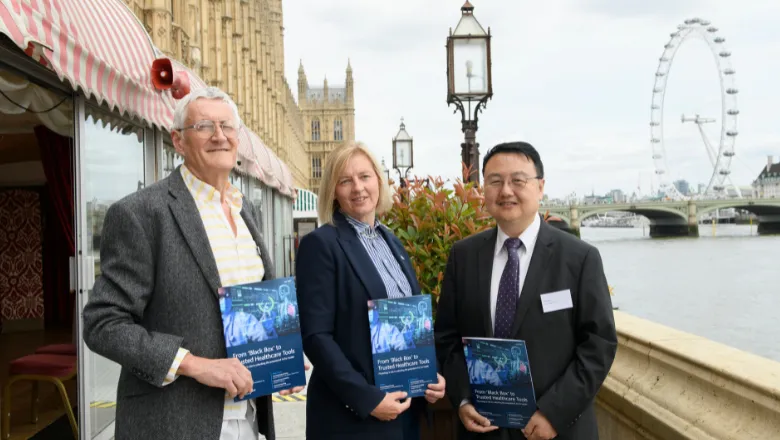
'Inspirational, informative and thought-provoking': King's Festival of Artificial Intelligence
King’s opened its doors to the public to explore the latest AI developments at this five-day festival.
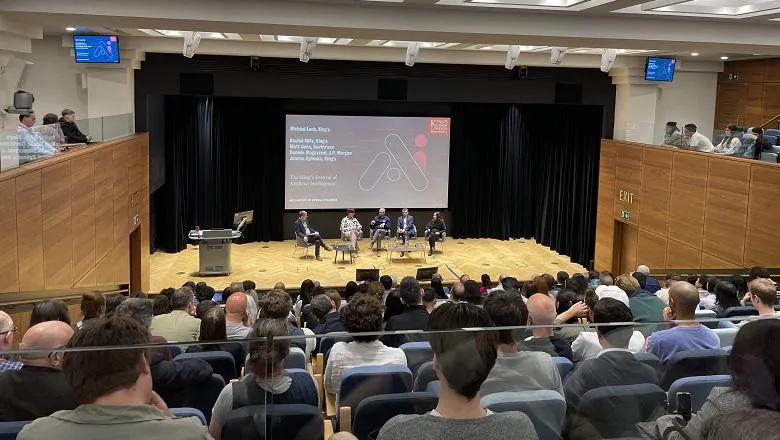
'Look beneath the hood of AI'- Siddharth Khajuria and Professor Michael Luck in conversation
As two major exhibitions about artificial intelligence open at King’s, Professor Michael Luck, Director of the Institute for Artificial Intelligence and...
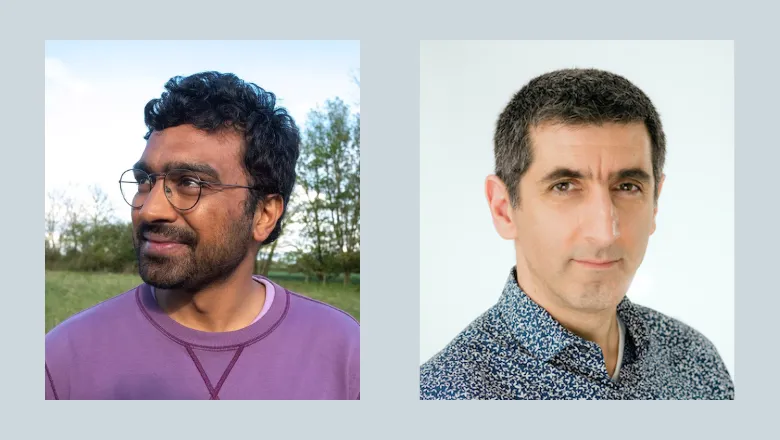
Exhibition launch: 'The debate on AI will continue and intensify'
A new exhibition from King’s Institute for Artificial Intelligence is showcasing the potential for new and emerging applications for AI, as well as providing...
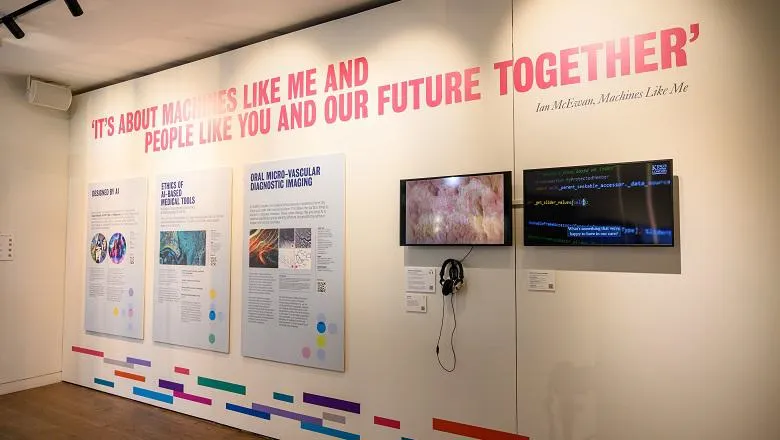
King's scientists explore the effects of AI on human life
Bringing the Human to the Artificial presents cutting-edge AI research at King’s.

New season at Science Gallery London explores the ethics of AI
King’s flagship public gallery Science Gallery London announces ‘AI: Who’s Looking After Me?’, a new major exhibition and public events programme exploring...
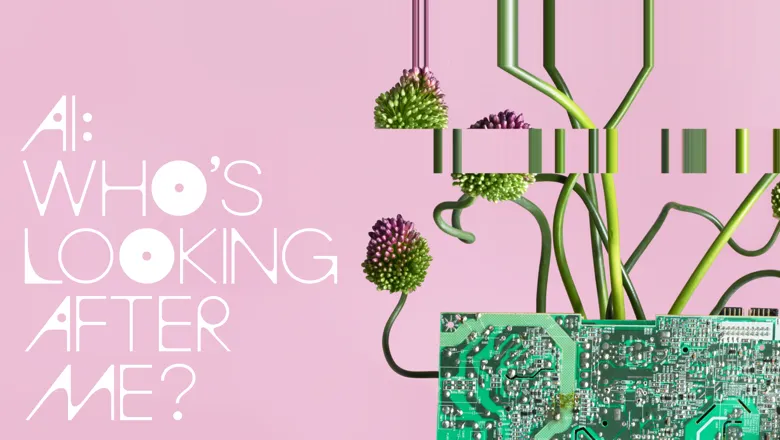
King's to bring its AI expertise to The Alan Turing Institute
King’s has today been announced as a member of the new Turing University Network launched by the Alan Turing Institute – the UK’s national institute for data...
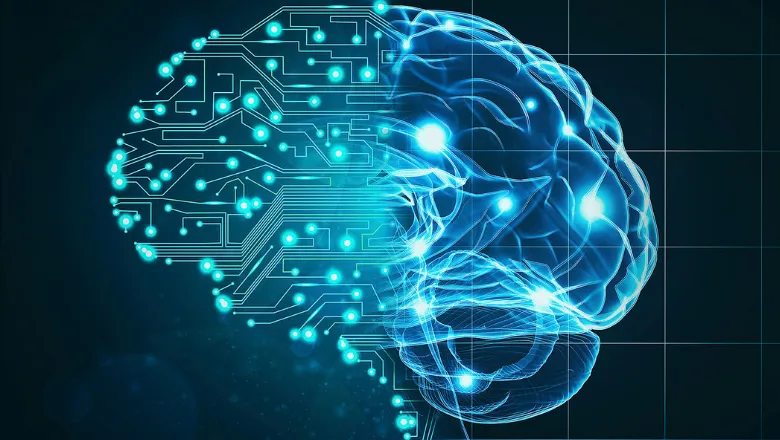
New exhibition explores artificial intelligence and automated decision-making
Bringing the Human to the Artificial showcases the breadth of artificial intelligence research at King’s and explores the challenges society must confront.
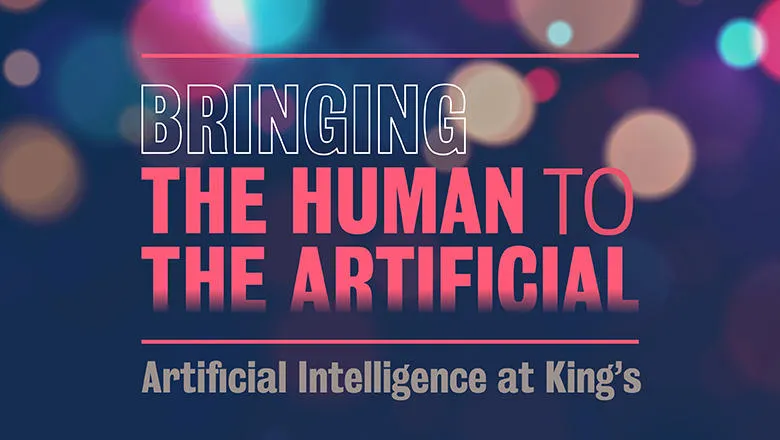
King's awarded network development grant by The Alan Turing Institute
Grant awarded by Alan Turing Institute

Professor Michael Luck elected fellow of the European Association for Artificial Intelligence
Professor Michael Luck, Professor of Computer Science and Director of the UKRI Centre for Doctoral Training in Safe and Trusted AI, has been elected a 2020...
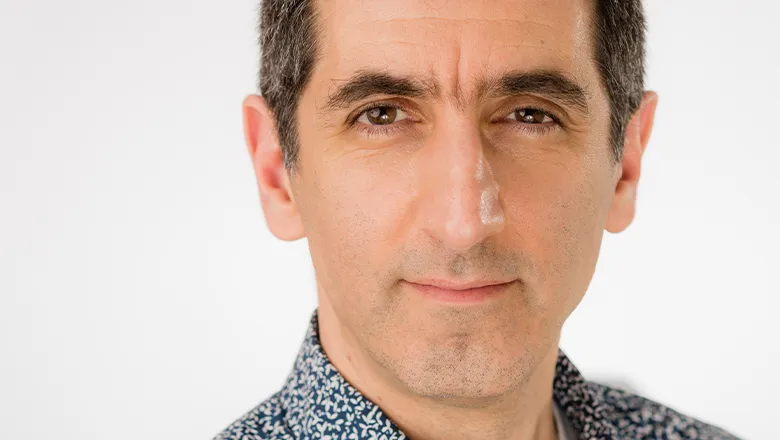
Events

Bringing the Human to the Artificial: An AI Panel
Experts from a range of AI fields join Michael Luck, Director of the King’s Institute for Artificial Intelligence, to consider key AI developments, issues and...
Please note: this event has passed.
Research

Trusted Autonomous Systems Hub
The Trusted Autonomous Systems Hub develops the trustable autonomous systems of tomorrow.
News
Report warns of potential AI has to perpetuate health inequalities
Dr Richard Siow, Director of Ageing Research at King’s, presented a landmark report exploring the role of Artificial Intelligence (AI) in healthcare to the...

'Inspirational, informative and thought-provoking': King's Festival of Artificial Intelligence
King’s opened its doors to the public to explore the latest AI developments at this five-day festival.

'Look beneath the hood of AI'- Siddharth Khajuria and Professor Michael Luck in conversation
As two major exhibitions about artificial intelligence open at King’s, Professor Michael Luck, Director of the Institute for Artificial Intelligence and...

Exhibition launch: 'The debate on AI will continue and intensify'
A new exhibition from King’s Institute for Artificial Intelligence is showcasing the potential for new and emerging applications for AI, as well as providing...

King's scientists explore the effects of AI on human life
Bringing the Human to the Artificial presents cutting-edge AI research at King’s.

New season at Science Gallery London explores the ethics of AI
King’s flagship public gallery Science Gallery London announces ‘AI: Who’s Looking After Me?’, a new major exhibition and public events programme exploring...

King's to bring its AI expertise to The Alan Turing Institute
King’s has today been announced as a member of the new Turing University Network launched by the Alan Turing Institute – the UK’s national institute for data...

New exhibition explores artificial intelligence and automated decision-making
Bringing the Human to the Artificial showcases the breadth of artificial intelligence research at King’s and explores the challenges society must confront.

King's awarded network development grant by The Alan Turing Institute
Grant awarded by Alan Turing Institute

Professor Michael Luck elected fellow of the European Association for Artificial Intelligence
Professor Michael Luck, Professor of Computer Science and Director of the UKRI Centre for Doctoral Training in Safe and Trusted AI, has been elected a 2020...

Events

Bringing the Human to the Artificial: An AI Panel
Experts from a range of AI fields join Michael Luck, Director of the King’s Institute for Artificial Intelligence, to consider key AI developments, issues and...
Please note: this event has passed.
